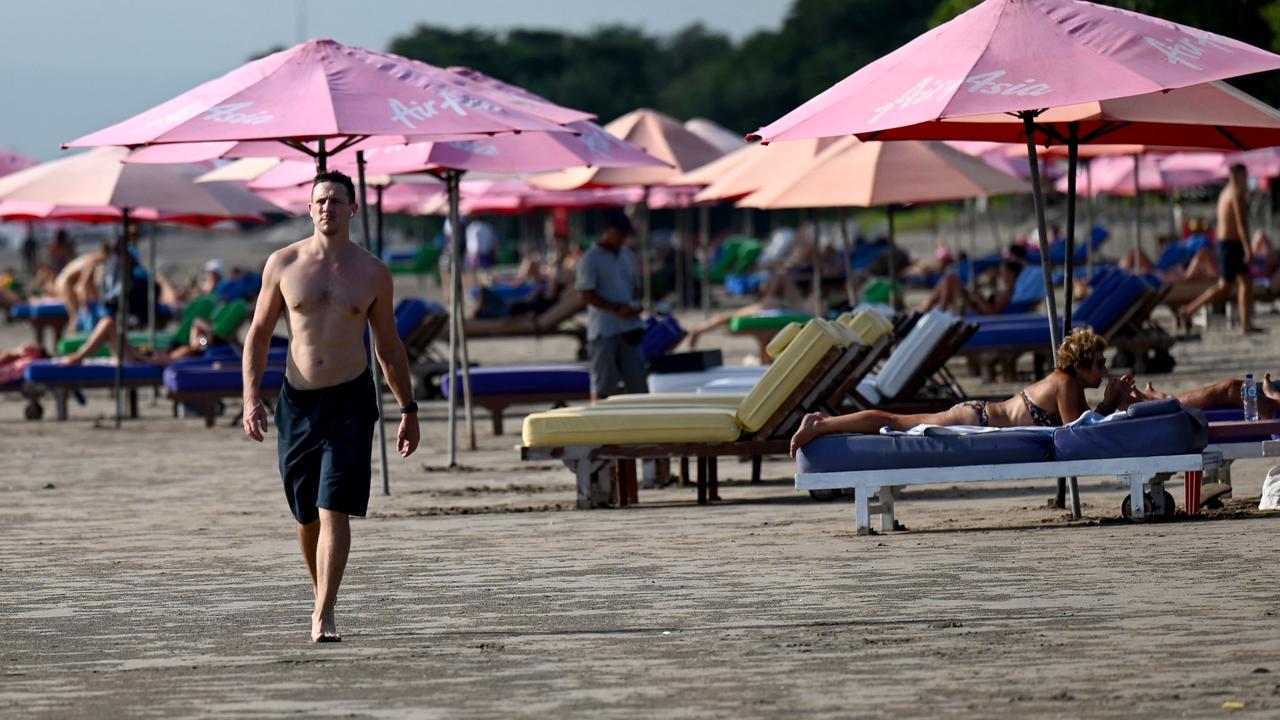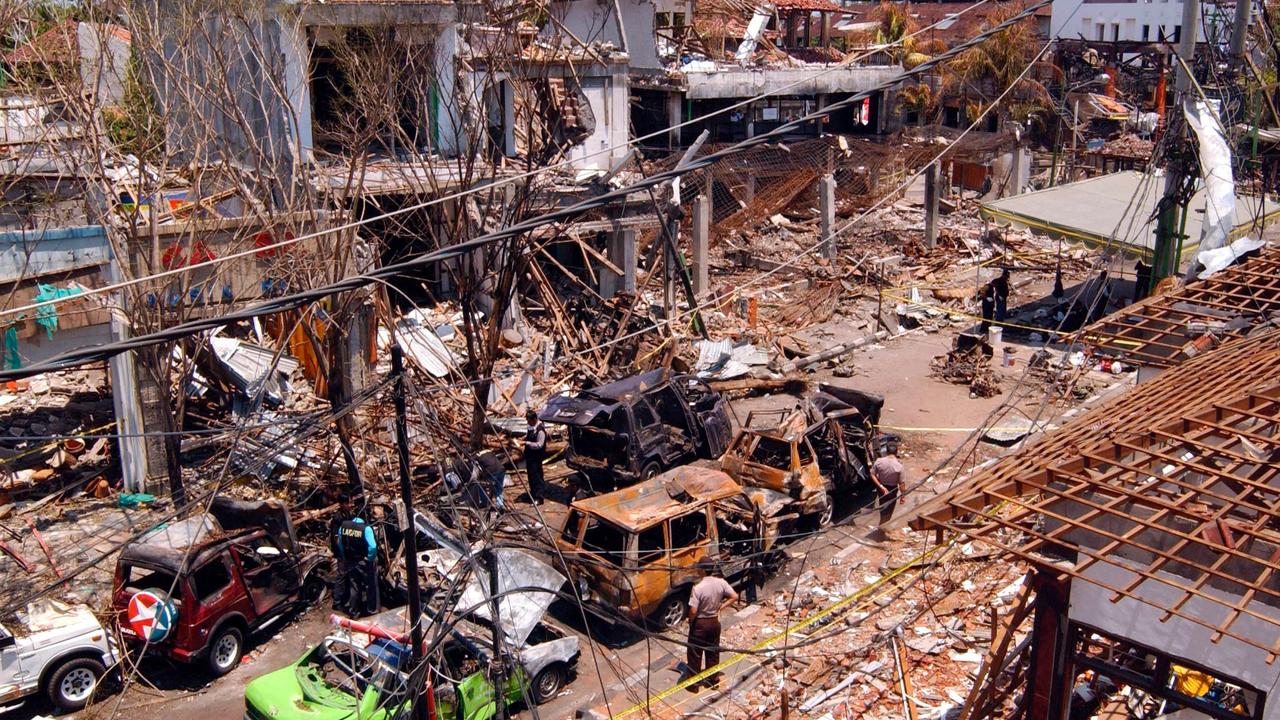The day I almost became a drug mule (unwittingly)
PEOPLE say there’s no way Cassie Sainsbury was unaware of the drugs in her suitcase but it’s not impossible. It happened to me.
Travel
Don't miss out on the headlines from Travel. Followed categories will be added to My News.
IT’S easy to say accused Australian drug smuggler Cassie Sainsbury is lying when she claims to have unwittingly been cast in the role of a drug mule but it can — and does — happen.
I know, because it happened to me.
Ms Sainsbury says she was betrayed by a man she met on a “working holiday” in Bogota, Colombia, last month after he allegedly concealed 6kg of the drug inside boxes of discounted headphones she’d bought from him.
She had no reason to check the meticulously wrapped packages he’d delivered to her hotel room hours before she was due to fly out because he’d been a “nice” guy who’d acted as her unofficial translator for a whole week.
While that might seem like an unbelievable scenario on so many levels, finding friendship in an unfamiliar, potentially dangerous city can lull a person into having a false sense of security.
More than 25 years have passed since the day I unknowingly transported a bag of weed across a remote civil war-torn territory but recalling it still makes my stomach clench and the bile rise in my throat.
On a whim, I had dropped out of university in the UK and bought myself a ticket to India — leaving within days without telling my parents or even my friends.
It was January, 1991, the first Gulf War was in full swing and the world was on high alert for terrorist attacks and hijackings. People had been advised against air travel and India was considered a high risk destination.
Not a good time to fly Pan Am from London to Mumbai (or Bombay as it was called back then); the iconic US airline was the target of frequent threats and shut down operations for good later that year. Security at the airport was so tight it took almost three hours to get through customs.
I arrived in Mumbai on my 20th birthday — I was just a couple of years younger than Cassie is now — and within three minutes of leaving the airport terminal I was being offered everything from chai (sweet tea) and cheap rooms to cannabis resin and opium.
Over the next few months I slowly made my way north. I spent each day in a state of heightened awareness, trying to see everything, do everything, battling alternating bouts of dysentery and giardia (and self-medicating like all backpackers travelling on a shoestring in those days) as well as trying not to get robbed.
By late June I was on my way to Kashmir, a misguided decision given that it was pretty much a war zone at the time. Tensions between the Indian military, Pakistan and Kashmiri freedom fighters over the disputed region had reached their most dangerous level in years and most foreign travellers kept away.
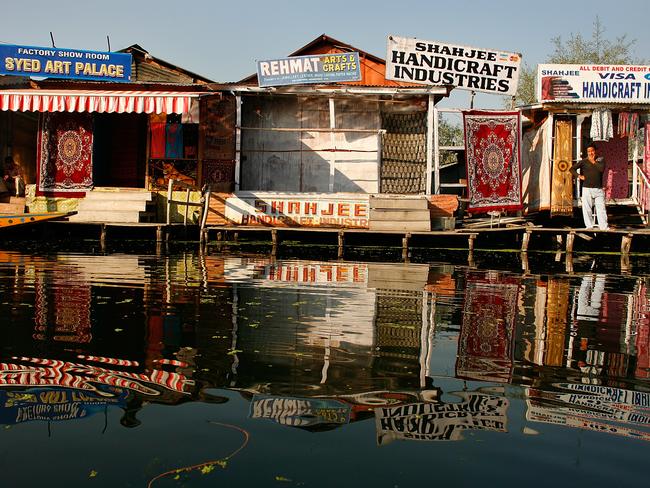
But I had always dreamt of staying on one of those ornate Raj-era houseboats on Dal Lake and was assured by a tour guide that it was perfectly safe, despite a government warning for tourists not to travel there.
The first night on the houseboat was incredible, the scenery ethereal, other-worldly. It was quiet — there were hardly any other tourists (most having been smart enough to heed the travel warnings).
The only other foreigners I was aware of were a large group of friendly young Israelis on a house boat about 50m across the water from mine and an Aussie in his mid 20s on the vessel directly adjacent.
Locals in this predominantly Muslim region were wary of Israelis and there was a widespread belief that they worked for the CIA.
In those days India — and particularly Kashmir — was a popular destination for young Israeli men and women looking to lose themselves for a year after completing their country’s compulsory military service.
Occasionally the stillness would be perforated by gunfire, small explosions and an eerie whistling sound my host (the houseboat owner) informed me was the sound of mortars going off. Don’t worry, he said. Just the mujahideen training in the hills and keeping watch. They won’t harm tourists, they’re on our side and they know we need the business.
The second night was a different story. The sound of rocket launchers and gunfire ricocheted across the lake. Occasionally there was shouting and screaming. Then more gunfire. I was too tense to sleep but by about 4am, exhaustion from endless train journeys and hairy bus rides finally got the better of me and I crashed out.
When I woke sometime midmorning the next day, I was cheerfully informed by my host that “all tourists had been evacuated” early that morning following an attack by Kashmiri freedom fighters.
Overnight, the rebels had silently boarded the Israelis’ houseboat. They had kidnapped six of them at gunpoint and threatened to kill them for being Jewish.
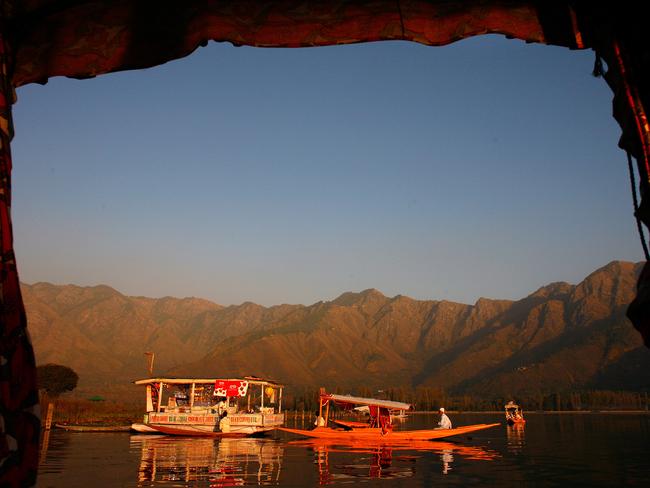
Fresh out of military service, the tourists had fought back, wrestling a weapon from one of their abductors and killing two of them. One young Israeli was killed and another wounded, but the others escaped safely.
As a result, authorities had ordered all remaining foreigners evacuated. Yet the Aussie bloke next door and I were still here.
“I told the police I would keep you safe,” my host said reassuringly. “But now you are not allowed to leave the boat because there is a strict curfew.”
For the next month I was stranded in paradise, unable to find a shikara (small boats that ferry houseboat residents to and from shore) willing to break the curfew by taking me to shore.
But the shikaras would visit me by the dozen, pulling up alongside the houseboat trying to sell local wares to the only tourist left on the lake (the Aussie bloke disappeared one night, presumably after securing a safe passage out of Srinigar). Everything from decorative hand carved chess sets to intricate cloth mandalas and pungent Kashmiri tea.
It was in this environment that I befriended a young Kashmiri couple. They would invite me for home cooked meals on their houseboat almost every night. They regaled me with stories about life before the war, when tourists came to Srinigar in their thousands, famous directors set their movies on Dal Lake and everybody was rich.
They told me of a Canadian couple who had holidayed with them for two weeks every year for the past five and sent them letters and postcards in the months in between.
The couple revealed they had recently received some wonderful news from the Canadians — they were expecting their first child, a girl, and hoped to bring the baby to visit them in Dal Lake as soon as she was old enough.
I was shown dozens of photographs of the four of them together, taken on annual pilgrimages to the lake over several years.
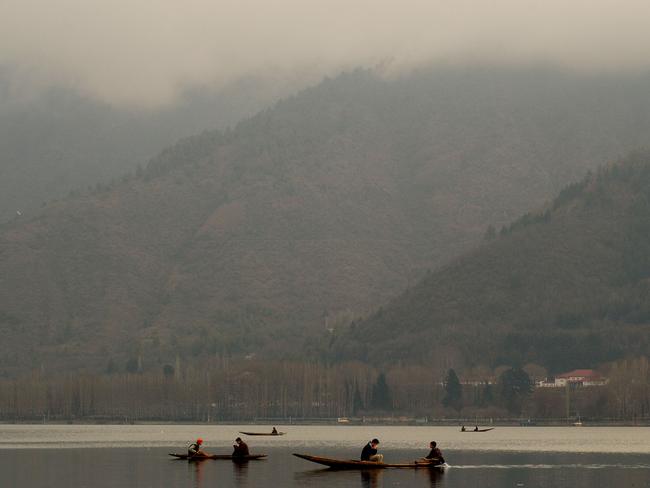
One day the curfew was relaxed and somebody arrived on board clutching a bus ticket from Srinigar to Calcutta (now known as Kolkata) via New Delhi.
My Kashmiri friends cooked an elaborate farewell feast for me and we made promises to keep in touch after I left. Over dinner, the husband produced a cloth bag. Inside were three tiny sets of silk baby clothes sewn by his wife, a hemp maternity dress, two small gold leaf paintings and a plastic bag of aromatic Kashmiri tea.
Would it be too much trouble, he asked, for you to take this package and post from Delhi to our friends in Canada? Or better yet, take it back to London and post it from there?
He said the military checked all mail coming in and out of Srinigar and valuables often went missing during this process. Or the mail simply never made it out.
He feared his wife’s painstaking handiwork would be stolen if intercepted.
I readily agreed. After all, I had grown to trust them.
Days later I found myself at the general post office in New Delhi. I walked in with the parcel, which was basically a sack that had been sewn shut. I queued up to get it weighed and stamped but noticed that staff were asking all customers to open their parcels for inspection, slowing down the process considerably.
Someone in the queue explained it was yet another security measure introduced in the wake of the Gulf War, which had sparked a spate of bombings targeting westerners across the Indian capital.
A feeling of unease crept over me. My Kashmiri friends had shown me the contents of the parcel over dinner but it had been sewn shut before it was given to me.
How could I really be sure of what was inside?
I dropped out of the queue and walked out of the post office. I found a cafe, walked into the toilet and picked at the stitches. Inside was a heavily insulated foil package wrapped in thick tape. My heart felt like it was going to burst out of my chest. I ripped it open and the unmistakeable stench of weed filled the cubicle. There was a lot of it. Several kilograms worth.
If the post office staff had found it, I would have immediately been arrested and thrown in jail.
If I had decided not to brave the queues and taken the package to London to mail, it would have almost certainly been detected by baggage X-rays and the outcome would have been even worse.
I was furious at the couple’s betrayal, their willingness to put me in danger and furious at myself for not insisting on checking the parcel in their presence before leaving Srinigar.
Our bus had been stopped at several military checkpoints on the way out of Srinigar and boarded by officers checking for weapons. I could have been caught with the weed at any time.
I ended up throwing the package away. But every time somebody gets busted with drugs at an airport I think: “There but for the grace of God go I.”
*The author’s name was withheld to protect her identity
Originally published as The day I almost became a drug mule (unwittingly)

